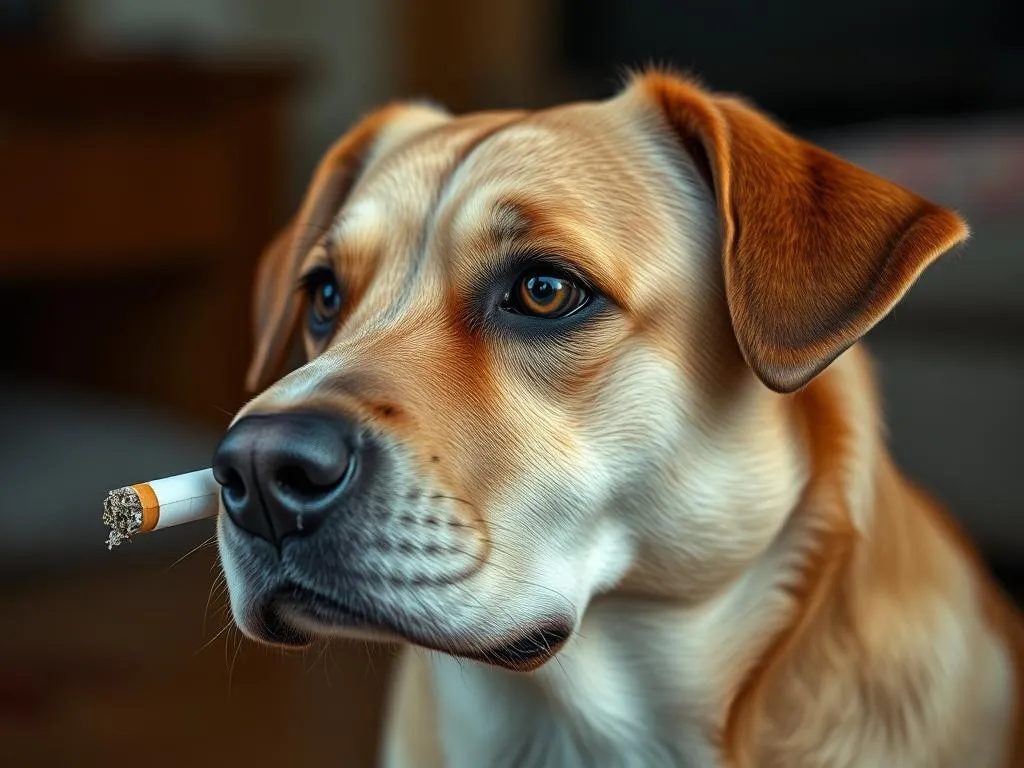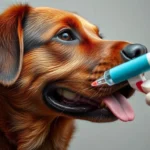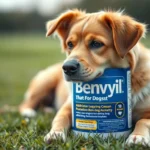
In the world of pet ownership, one of the most concerning situations is when our furry friends consume something harmful. If you’ve found yourself saying, “My dog ate a cigarette butt,” it’s essential to understand the potential risks and the necessary actions to take. Cigarette butts, seemingly innocuous, contain harmful substances that can pose serious threats to your dog’s health.
Understanding the Risks of Ingesting Cigarette Butts
Composition of Cigarette Butts
Cigarette butts are not just leftover tobacco; they are composed of various materials that can be dangerous for dogs. The primary concern is nicotine, which is highly toxic to pets. In addition to nicotine, cigarette butts contain numerous chemicals, including:
- Tar
- Carbon monoxide
- Formaldehyde
- Acetone
These substances are not just harmful; they can lead to severe health complications, making it critical to understand why ingestion poses such a risk.
Potential Health Risks for Dogs
When a dog ingests a cigarette butt, the most immediate concern is acute toxicity from nicotine poisoning. Symptoms may manifest quickly and can include:
- Vomiting
- Diarrhea
- Rapid heart rate
- Tremors
- Seizures
In severe cases, nicotine poisoning can lead to death. Long-term exposure to the chemicals found in cigarette butts can also result in organ damage or chronic health conditions down the line, making it crucial to act promptly.
Immediate Actions to Take If Your Dog Eats a Cigarette Butt
Assessing the Situation
If you find yourself in the alarming situation of thinking, “My dog ate a cigarette butt,” the first step is to assess your dog’s condition. Look for signs such as:
- Changes in behavior (e.g., unusual lethargy or hyperactivity)
- Vomiting or diarrhea
- Excessive drooling
- Tremors or shaking
Remain calm and observe your dog closely, as this will help you communicate effectively with your veterinarian later.
When to Contact a Veterinarian
It’s critical to know when to reach out for professional help. Contact your veterinarian if:
- Your dog is showing any of the symptoms mentioned above.
- You are unsure about the amount of the cigarette butt ingested.
- The size of your dog raises concerns about weight and toxicity levels.
Before making the call, gather information such as the time of ingestion and your dog’s health history. This information will aid the vet in providing the best care.
First Aid Measures
While waiting for veterinary assistance, there are a few steps you can take at home. If your dog shows no signs of distress and the ingestion was recent, you may consider inducing vomiting, but only under veterinary guidance.
Warning: Avoid using home remedies like salt or hydrogen peroxide without professional advice, as these can exacerbate the situation.
What To Expect at the Vet’s Office
Initial Assessment
At the veterinarian’s office, the first step will be an initial assessment. The vet will evaluate your dog’s condition, looking for visible symptoms of nicotine poisoning. They may ask questions such as:
- When did you notice your dog ate the cigarette butt?
- How much do you think was ingested?
- Has your dog shown any symptoms since ingestion?
This information will help the vet determine the urgency and course of action.
Diagnostic Procedures
Depending on the situation, your vet may recommend several diagnostic procedures, including:
- Blood tests to check for nicotine levels and assess overall health.
- X-rays to determine if any large pieces are lodged in the gastrointestinal tract.
- Urine tests to evaluate kidney function.
Knowing the time of ingestion is crucial for effective treatment, as it influences the vet’s decisions regarding the next steps.
Treatment Options
Treatments for a dog that has ingested a cigarette butt can vary based on severity. Some options include:
- Inducing vomiting: This is often the first line of defense if the ingestion was recent. The vet may perform this safely with appropriate medications.
- Activated charcoal: If your dog is stable, the vet may administer activated charcoal to bind the nicotine and prevent further absorption.
- Intravenous fluids: If your dog is dehydrated or experiencing severe symptoms, fluids may be necessary to support recovery.
Long-term Health Considerations
Monitoring Recovery
After initial treatment, monitoring your dog’s recovery is essential. Signs of recovery can include:
- Resuming normal eating and drinking habits
- Increased energy levels
- Normalizing bowel movements
Conversely, watch for complications like persistent vomiting or unusual lethargy, which may require follow-up visits.
Potential Long-term Effects
While most dogs recover from nicotine poisoning, there can be long-term implications. Some dogs may develop behavioral changes, such as:
- Increased anxiety or restlessness
- Signs of nicotine addiction
Furthermore, exposure to other chemicals in cigarette butts can lead to secondary poisoning, which may affect overall health.
Prevention Strategies
Keeping the Environment Safe
To prevent future incidents, it’s essential to dog-proof your home. Here are some strategies:
- Proper disposal: Ensure that cigarette butts are disposed of securely and not left within reach of your dog.
- Educate family and guests: Make sure everyone understands the dangers of smoking around pets and the importance of keeping harmful items away.
Training Your Dog
Training can also play a crucial role in prevention. Consider the following:
- Teach basic commands such as “leave it” or “drop it” to discourage scavenging behavior.
- Use positive reinforcement techniques to reward good behavior, making training a fun experience.
Regular Vet Check-ups
Routine health exams are vital for early detection of issues. During visits, discuss dietary and behavioral concerns with your vet to ensure your dog is thriving.
Conclusion
In summary, if you find yourself worrying, “My dog ate a cigarette butt,” it’s crucial to act quickly and calmly. Understand the risks associated with cigarette butt ingestion, assess your dog’s symptoms, and know when to seek veterinary assistance. By taking preventive measures and fostering a safe environment, you can help ensure your furry friend remains healthy and happy. Responsible pet ownership includes being aware of potential dangers and acting swiftly when problems arise.









